Chemists are allocated funds each year based on how many prescriptions they dispense and additional services they provide for the community, such as flu jabs. On average, up to 90% of each pharmacy's income comes from the NHS.
Speaking to the Daily Mail, Sandra Gidley from the Royal Pharmaceutical Society, said: "We have a number of concerns. We have spent a lot of time and energy encouraging people to come to pharmacies for health advice to cut pressure on A&E departments and GP services." For the need to save money amounting to just 10 days' worth of our net payments to the EU of £121 million every week, the government plans to cause considerable damage to local communities, more hardship for people needing prescriptions and put additional strain on already over-stretched GP and hospital services. This is damage that can easily be avoided by voting to leave the EU on 23 June and ensuring some of the £121 million a week saved is allocated to maintaining local pharmacy services.
0 Comments
Savings will be found by cutting beds, slashing GP prescriptions, reducing the use of agency staff and reviewing services such as on sexual health, according to NHS Lothian plans for 2016-17.
NHS chiefs are struggling to tackle a £77 million funding gap caused by rising demand and an ageing population. The latest proposals include a bid to reduce reliance on the private sector, which NHS Lothian uses if its own hospitals don't have the capacity to meet Scottish Government operation time guarantees. The move is likely to delay elective surgeries such as knee operations and hip replacements, leaving patients in pain for longer. Managing NHS funding in Scotland is devolved to the Scottish Parliament, which receives a block grant from the UK government linked to NHS spending in England via the Barnett formula. If NHS spending in England rises due to the UK gaining a net £121 million a week from leaving the EU, then Scotland's NHS grant will rise accordingly. The £25 million needed to avoid these dramatic cuts to NHS services is little more than a day's worth of the amount currently paid to the European Union; a shocking mismatch in our public spending priorities, given the huge, direct and very personal difference that an effective NHS makes to the lives of many thousands of people who need medical help. Voting to Leave the EU on 23 June will release an extra £121 million every week to easily provide the necessary funding to prevent these cuts, and much more.
But in a decision condemned by MPs and charities, the medicines approval body the National Institute for Health and Care Excellence (NICE) has blocked provision of the drug on the NHS.
Although NICE admits that Orkambi reduces a sudden worsening of symptoms requiring hospitalisation and provides 'modest' benefits to lung function, they have said that, at £104,000 a year per patient, the drug isn’t cost-effective. Experts say that, while not a cure, Orkambi could allow many to lead near-normal lives without the need for a transplant. About 10,000 Britons have CF, of which 2,750 people in England have the genetic defect that Orkambi is designed to treat. That this life-changing drug for people suffering cystic fibrosis has been blocked for NHS use for the lack of £104,000 per patient a year - when we hand £121 million a week to the financially mismanaged EU - ought to be a huge scandal. The money needed is less than 10 minutes of the cash Britain must pay into the EU's budget as an EU member. We can change this - and give the NHS a chance to make a real difference to the lives of CF sufferers - by voting to leave the EU on 23 June.
Local NHS leaders have claimed that the move could increase investment in healthcare facilities closer to home and avoid the need for people to go into hospital.
But those who do need hospital treatment will find four community hospitals - in Bovey Tracey, Ashburton, Dartmouth and Paignton - closed and the number of minor injury units reduced from seven to just three, putting additional pressure on other, already over-stretched NHS facilities. In its consultation document (page 12), the South Devon and Torbay Clinical Commissioning Group confirm that "the demands on funds outstrip any new funding available and the CCG needs to make significant savings over each of the coming years. For 2016/17 we currently have a £16m shortfall." The proposed closures, described as a "slash and burn" approach to local NHS services by Torbay & South Devon Trades Union Council secretary Paul Raybould, are expected to contribute just £1.4m to this shortfall. Yet the entire £16m total deficit in South Devon NHS funding provoking these changes could easily be found by the government if we were to stop handing a net £121 million to the European Union every single week - the amount Britain pays into the EU budget over and above all the grants and subsidies the EU hands back. Unless the local NHS funding shortfall is found from somewhere, as Mr Raybould added: "We fear other community hospitals may also be at risk with the CCG looking to save money." Since the sum to save these four Devon hospitals represents less than a day's worth of the money that would be saved by leaving the EU, a great step towards finding the money to stop these cuts is to vote to leave the EU in the referendum on 23 June. |
Better BritainHighlighting how the UK's ArchivesCategories
All
|
|
The Democracy Movement, Marlborough House, High Street,
Hartley Wintney, Hampshire RG27 8NY T: 020 3637 4546 E: campaign @ democracymovement.org.uk © 2023 Democracy Movement. All rights reserved. |
Our legal status is as a registered company, limited by guarantee - a non-profit status. No. 3673846. In accordance with legal requirements, we file annual accounts and the details of our directors every year with Companies House.
Privacy statement: We will not pass on your contact details to any other organisation or use them for any purposes other than promoting the activities of our campaigns. |
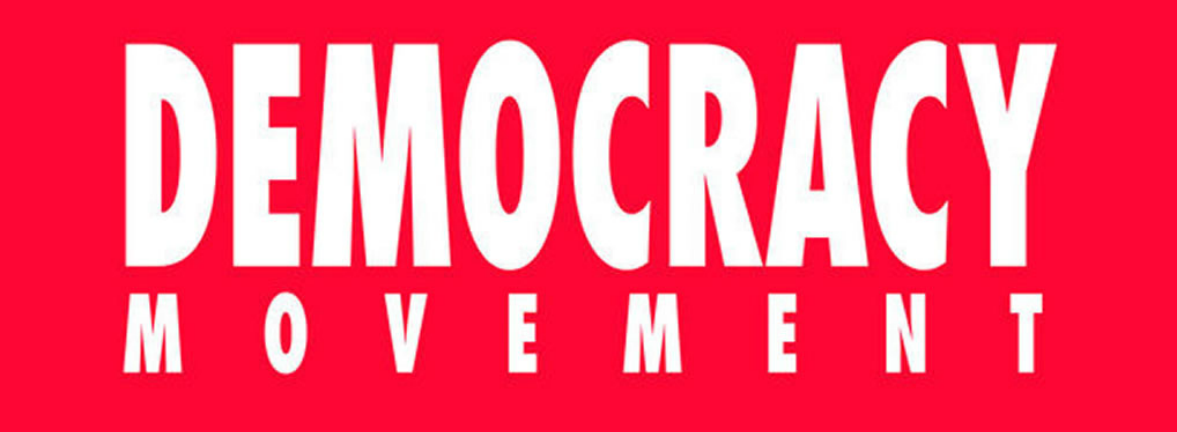
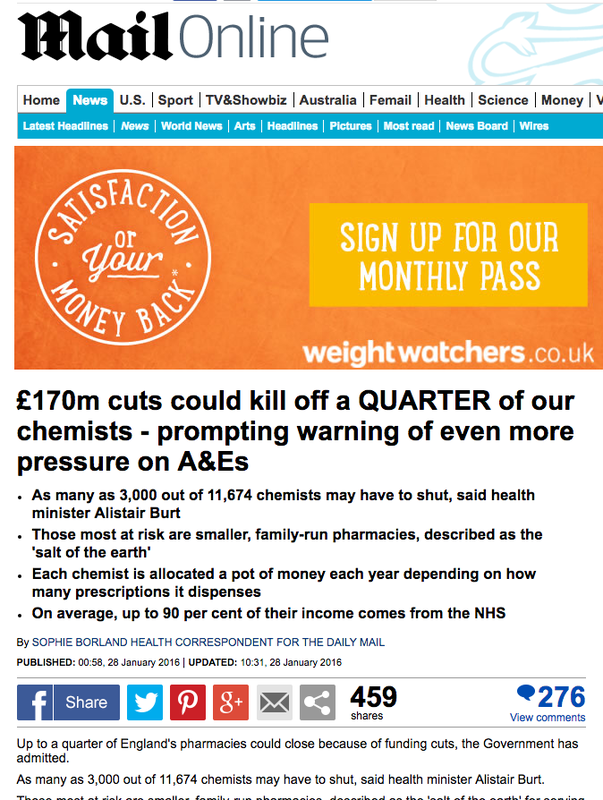
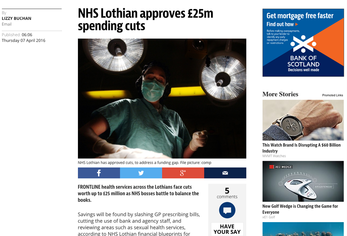
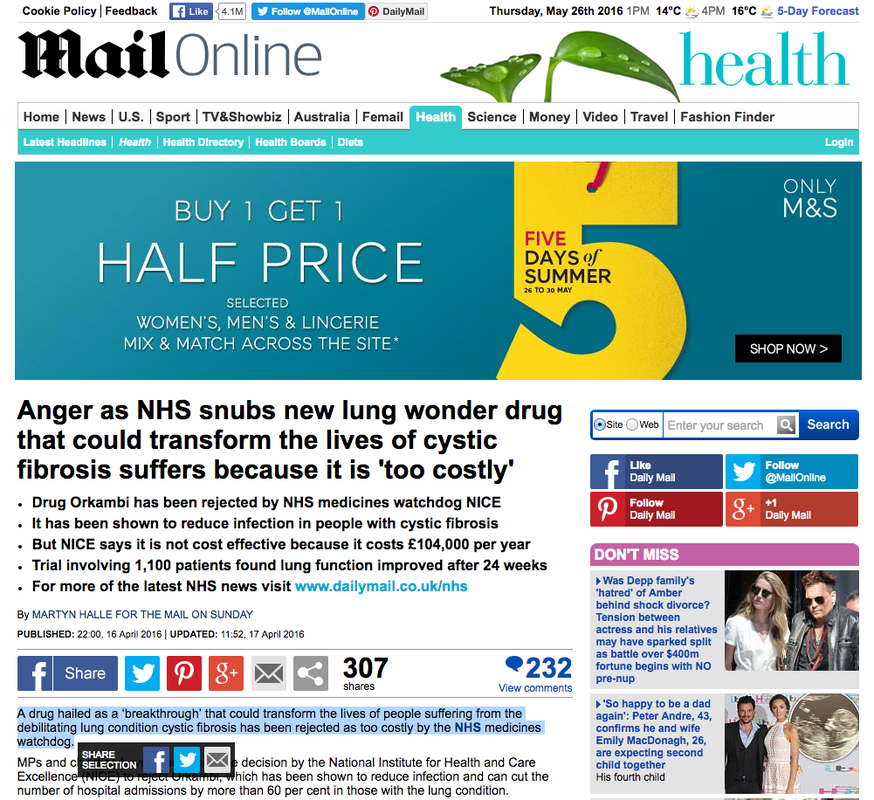
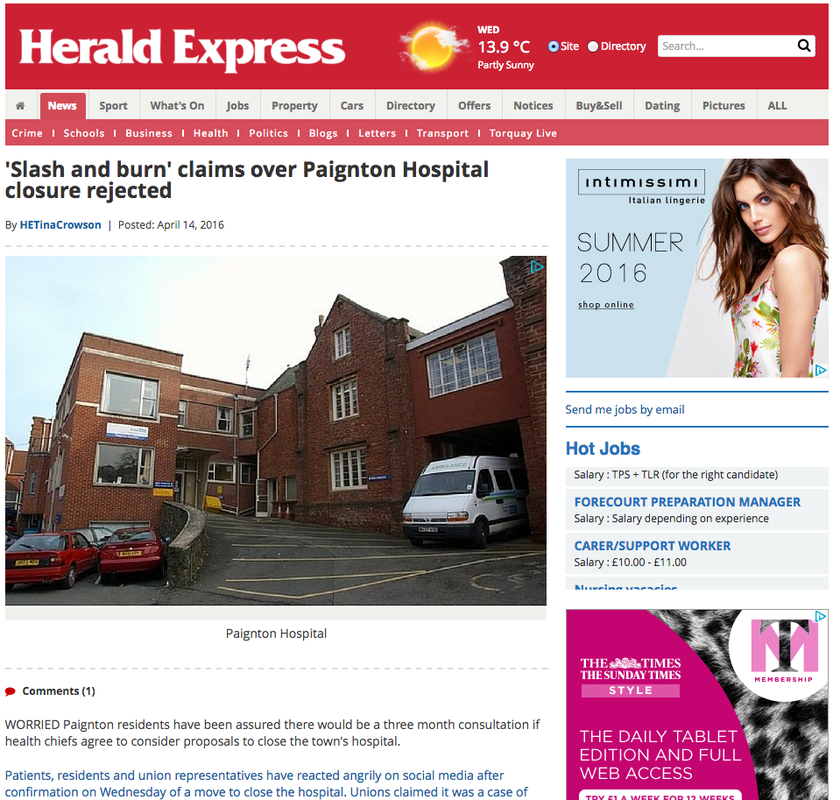
 RSS Feed
RSS Feed